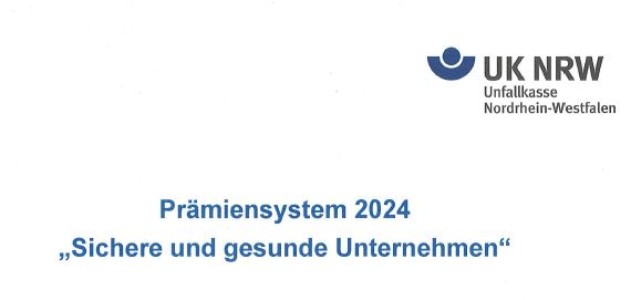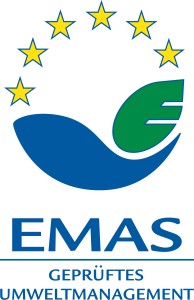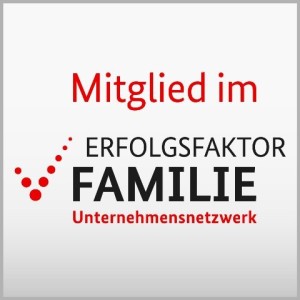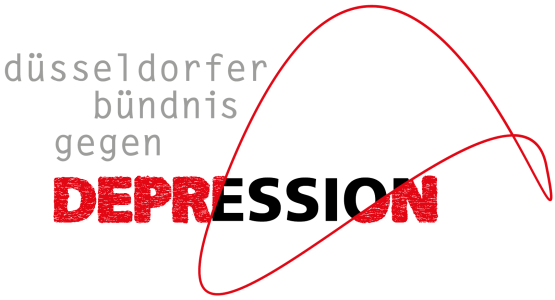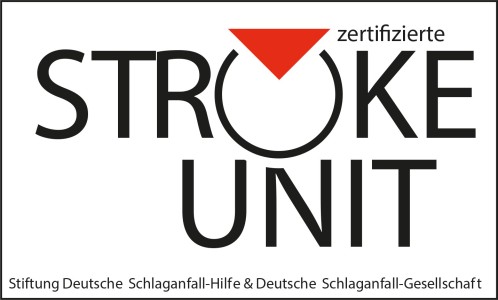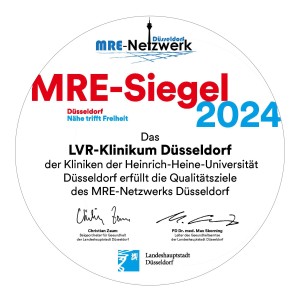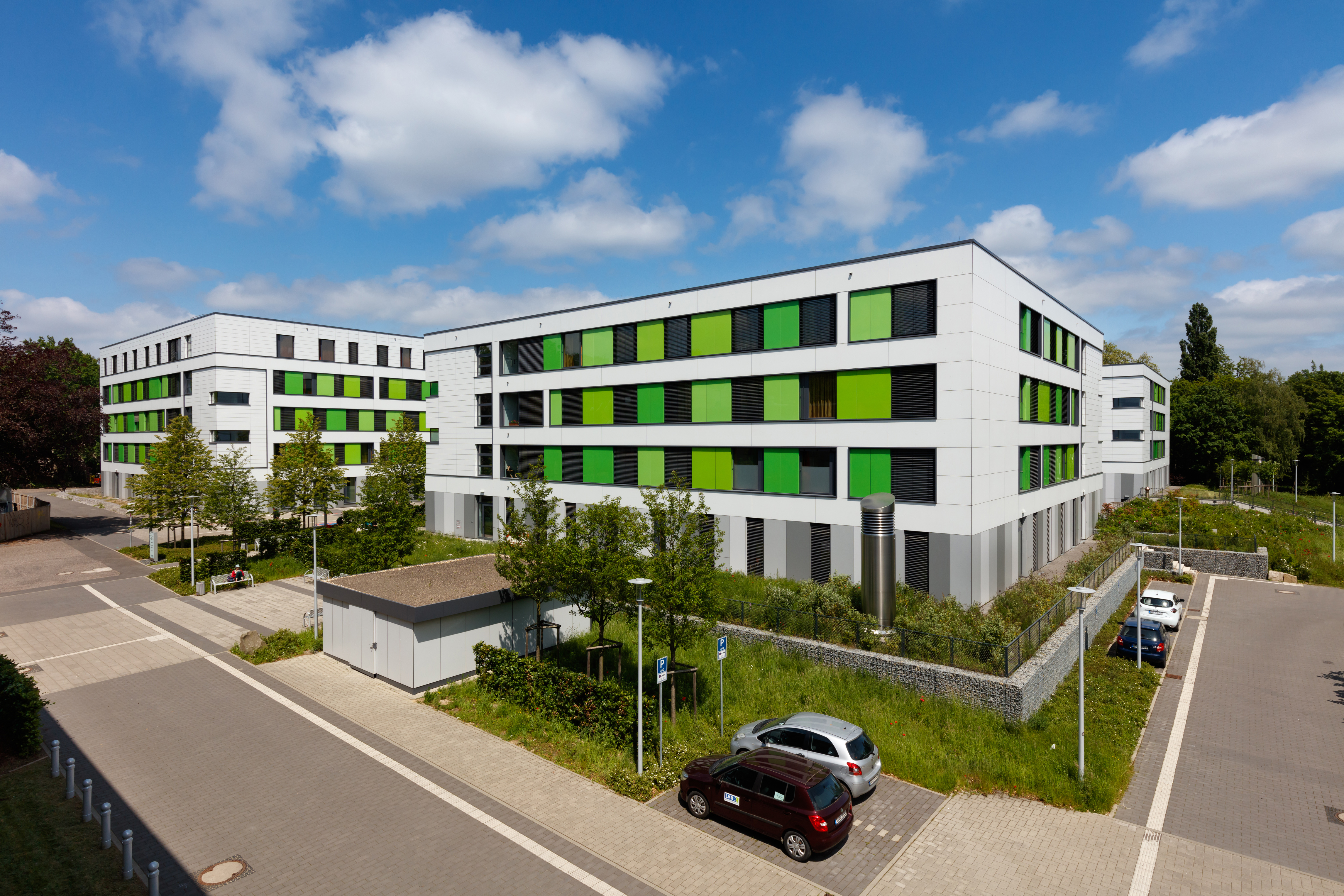Informationen zum Projekt EuDIQuAM
EuDIQuAM (Towards a European Digital Infrastructure for Quality Assurance in Personalized Mental Health Care)
For English information, please see below.
Das Projekt EuDIQuAM (Towards a European Digital Infrastructure for Quality Assurance in Personalized Mental Health Care) setzt die Ergebnisse des Vorgängerprojekts DAQUMECA (Development and Implementation of Quality Indicators for Mental Healthcare in the Danube Region) fort, welches Qualitätsindikatoren für psychische Erkrankungen in Ländern der Donauregion entwickelt und implementiert hat. [1][2]
EuDIQuAM wird vom BMBF (Bundesministerium für Bildung und Forschung) von Mai 2019 bis voraussichtlich April 2020 mit insgesamt ca. 110.000 € gefördert (Förderkennzeichen: 01DS19032). Projektnehmer ist die Heinrich-Heine-Universität Düsseldorf, vertreten durch das Universitätsklinikum Düsseldorf. Für die Durchführung des Projekts ist das LVR-Klinikum Düsseldorf zuständig (Projektleiter: Univ.-Prof. Dr. med. Wolfgang Gaebel).
Im Rahmen des Projekts EuDIQuAM wurde in der ersten Projektphase (Monat 1-3) das ursprünglich aus vier Partnerländern (Bulgarien, Serbien, Tschechien, Ungarn) bestehende Konsortium um zwei weitere Partnerländer (Litauen und Slowakei) erweitert mit abschließender Unterzeichnung eines Memorandum of Understanding (MoU) durch alle Projektpartner. Neben den Partnern aus den genannten Ländern ist ein Mitglied des WHO Regional Office for Europe mit Sitz in Kopenhagen (Dänemark) im Konsortium vertreten.
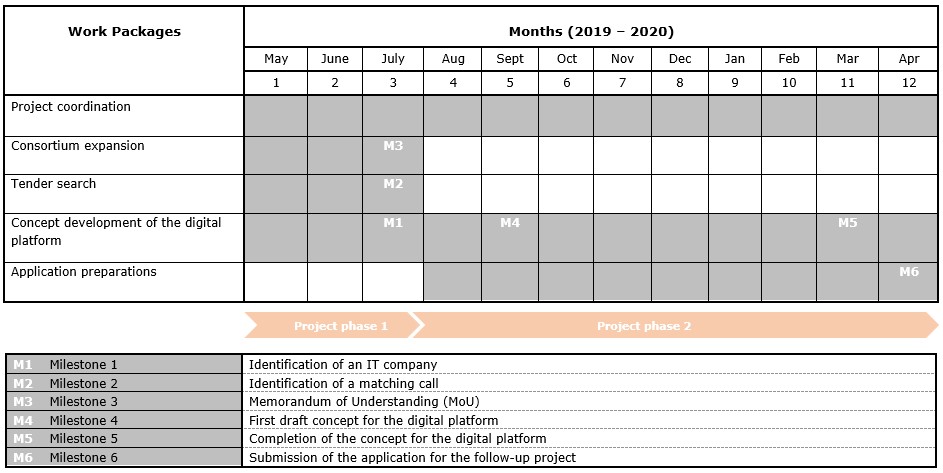
Ziel des Projekts ist die Erstellung eines Konzepts für eine digitale Serviceplattform zur Stärkung der personenzentrierten psychischen Gesundheitsversorgung, welche zum einen Patienten und Angehörige durch das psychische Gesundheitssystem lotsen und zur richtigen Behandlungsstelle führen soll und zum anderen Fachkräften im Gesundheitswesen mit unterstützenden Materialien und Informationen zur Verfügung stehen soll. Die Plattform soll zudem eine Datenbank mit den im vorangegangenen Projekt DAQUMECA entwickelten Qualitätsindikatoren umfassen als auch zur Unterstützung parallel laufender Reformprozesse in den Partnerländern dienen. Für die Entwicklung eines solchen Konzepts der digitalen Plattform wurde in der ersten Projektphase ein IT-Unternehmen ausgewählt, welches bereits gemeinsam mit dem LVR-Klinikum Düsseldorf ein Grobkonzept erstellt hat und derzeit an der Erstellung eines Feinkonzepts arbeitet.
Das Ergebnis der finalen Konzeptualisierung der digitalen Plattform wird für die Antragstellung eines Folgeprojekts herangezogen, das der Realisierung und Implementierung der Plattform in vier der sechs Partnerländer dienen soll. Hierzu wurde zu Beginn des Projekts eine passende Ausschreibung identifiziert, wofür in der zweiten Projektphase (Monat 4-12) gemeinsam mit der ursprünglichen und erweiterten Ländergruppe der Länderpartner ein europäischer Förderantrag im Rahmen des EU-Förderprogramms für Forschung und Innovation „Horizont 2020“ vorbereitet wird. Für die erste Antragsstufe eines solchen zweistufigen Antrags ist bereits im September 2019 ein Kurzantrag für ein Projekt EUDIMEN (European Digital Integration of People-Centred Mental Health and Care) bei der Europäischen Kommission gestellt worden. Im Falle einer Antragsgenehmigung wird im April 2020 die Stellung eines Hauptantrags erfolgen.
Im Zuge der Antragserstellung wurde bereits ein Konsortium für das Projekt EUDIMEN gebildet, bestehend aus insgesamt 14 Partnern aus 11 Ländern, darunter Deutschland, Belgien, Bulgarien, Litauen, Niederlande, Polen, Serbien, Slowakei, Tschechien, Ungarn, und die USA. Zusätzlich wurde ein aus Experten bestehendes multidisziplinäres Beratungsgremium gegründet, das das Konsortium während der Projektlaufzeit fachlich unterstützen wird.
Information on the project EuDIQuAM
EuDIQuAM (Towards a European Digital Infrastructure for Quality Assurance in Personalized Mental Health Care) is a research project that builds upon the results of the preceding project DAQUMECA (Development and Implementation of Quality Indicators for Mental Healthcare in the Danube Region), in which quality indicators for mental disorders were developed and implemented in countries of the Danube region. [1][2]
EuDIQuAM is funded by the BMBF (German Federal Ministry of Education and Research) from May 2019 until presumably April 2020 with a total budget of 110,000 € (funding number: 01DS19032). The official project taker is Heinrich-Heine-University Düsseldorf, represented by the University Hospital Düsseldorf. The project is being carried out by the LVR-Klinikum Düsseldorf (project leader: Univ.-Prof. Dr. med. Wolfgang Gaebel).
During project phase 1 (months 1-3), the original consortium consisting of four partner countries (Bulgaria, Serbia, Czech Republic, Hungary) was expanded by two additional partner countries (Lithuania and Slovakia) followed by the signature of a Memorandum of Understanding (MoU) by all project partners. In addition to the country partners, a representative of the WHO Regional Office for Europe based in Copenhagen (Denmark) is member of the consortium.
The aim of the project is to develop a concept for a digital service platform for strengthening person-centred mental health care. It will help guide patients and their relatives through the mental health system to the right treatment center and will provide health professionals with information and supporting materials on mental health care. The platform will also comprise a database of quality indicators developed in the previous project DAQUMECA and will support reform processes in the partner countries. For the development of a concept of the digital platform, an IT company was selected in project phase 1. In cooperation with the IT company, a rough concept of the platform has already been developed. Currently, the team is working on a detailed concept of the platform.
The result of the final conceptualization of the digital platform will be used for the application of a follow-up project, in which the digital platform will be realized and implemented in 4 of the 6 partner countries. For this purpose, a suitable call for proposals was identified at the beginning of the project, for which a European grant application will be prepared in project phase 2 (months 4-12), together with the original and extended country group of the consortium. The application is a two-stage procedure and takes place within the framework of the EU subsidy program for research and innovation "Horizon 2020". For the first stage of the application, a short proposal for a project EUDIMEN (European Digital Integration of People-Centred Mental Health and Care) has already been submitted to the European Commission in September 2019. In case of application approval, a full proposal will be submitted in April 2020.
During the preparations for the first application round, a consortium consisting of 14 partners from 11 countries has already been formed for the EUDIMEN project, including partners from Germany, Belgium, Bulgaria, Lithuania, Netherlands, Poland, Serbia, Slovakia, Czech Republic, Hungary and USA. Additionally, a scientific advisory board of multidisciplinary experts has been established which will support the consortium during the project duration.
Projektpartner
Prof. Dr. Hristo Hinkov
National Center of Public Health and Analyses
Department of Mental Health
Acad Ivan Geshov blvd. 15
1431 Sofia
Bulgaria
E-Mail
Dr. Vladimir Nakov
National Center of Public Health and Analyses
Department of Mental Health
Acad Ivan Geshov blvd. 15
1431 Sofia
Bulgaria
E-Mail
Prof. Dr. Cyril Höschl
National Institute of Mental Health
Topolová 748
25067 Klecany
Czech Republic
E-Mail
Dr. Petr Winkler
National Institute of Mental Health
Topolová 748
25067 Klecany
Czech Republic
E-Mail
Prof. Dr. Tamás Kurimay
Saint John Hospital and North-Buda Integrated Hospitals
Buda Family Centred Mental Health Centre
Teaching Department of Semmelweis University
Department of Psychiatry and Rehabilitation
Diós árok u.1-3
1125 Budapest
Hungary
E-Mail
Prof. Dr. Gábor Kapócs
Saint John Hospital and North-Buda Integrated Hospitals
Buda Family Centred Mental Health Centre
Teaching Department of Semmelweis University
Department of Psychiatry and Rehabilitation
Diós árok u.1-3
1125 Budapest
Hungary
E-Mail
Prof. Dr. Dusica Lečić-Tosevski
Serbian Academy of Sciences and Arts
Institute of Mental Health
WHO Collaborating Center
Palmoticeva 37
11000 Belgrade
Serbia
E-Mail
Dr. Maja Milosavljević
Serbian Academy of Sciences and Arts
Institute of Mental Health
WHO Collaborating Center
Palmoticeva 37
11000 Belgrade
Serbia
E-Mail
Dr. Ramunė Mazaliauskienė
Lithuanian Psychiatric Association
Vasaros str. 5
10309 Vilnius
Lithuania
E-Mail
Dr. Ľubomíra Izáková
Slovak Psychiatric Association Department of Psychiatry
Faculty of Medicine
Comenius University and University Hospital
Mickiewiczova 13
813 69 Bratislava
Slovakia
E-Mail
Dr. Dagmar Breznoščáková
Slovak Psychiatric Association
1st Department of Psychiatry
University of P.J. Safarik in Kosice
Faculty of Medicine
University Hospital of L. Pasteur
Tr. SNP 1
040 11 Košice
Slovakia
E-Mail
Dr. Lívia Vavrušová
Slovak Psychiatric Association
Vavrusova.Consulting s.r.o.
Záporožská 12
851 01 Bratislava
Slovakia
E-Mail
Dr. Dan Chisholm
WHO Regional Office for Europe
Division for NCD and Life-Course
UN City,
Marmorvej 51
2100 Copenhagen
Denmark
E-Mail
Literatur
[1] Lehmann I, Chisholm D, Hinkov H, Höschl C, Kapócs G, Kurimay T, Lecic-Tosevski D, Nakov V, Réthelyi JM, Winkler P, Zielasek J, & Gaebel W. (2018). Development of quality indicators for mental healthcare in the Danube region. Psychiatria Danubina, 30, 197-206.
[2] Gaebel W, Lehmann I, Chisholm D, Hinkov H, Höschl C, Kapócs G, Kurimay T, Lecic Tosevski D, Milosavljevic M, Nakov V, Winkler P, Zielasek J (submitted for publication). Quality Indicators for Mental Healthcare in the Danube Region – Results from a Pilot Feasibility Study.
Zurück zu Forschung




